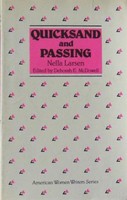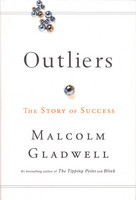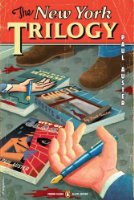Title: Fanpire: The Twilight Saga and the Women Who Love It
Author: Tanya Erzen
Year of Publication: 2012
LC Call Number: PS3613.E979
Okay! I’m soooo far behind. Let’s continue my writing about books I read in November!
I haven’t read the Twilight Saga and I don’t especially intend to read it; in fact, every time I learn more about it, it sounds less appealing. Stories about eternal romance aren’t really my thing, and from what I understand it’s essentially wish-fulfillment about being an ordinary girl and being swept off one’s feet by a love that is somehow extraordinary in nature. There is nothing intrinsically wrong with that, but the wishes it’s fulfilling ain’t mine! Then there are the cringeworthy details that I keep learning about, like the catatonic suicidal stuff and the “imprinting” business with love fated from birth, and, well, like I say, not too appealing to me. But this isn’t a book about Twilight, it’s a book about Twilight fans, and as such it’s actually of great interest to me. Twilight fans are, as a group, very different from any group to which I’ve ever belonged, even peripherally, so they’re intriguing partly because of that. And then again, I’m aware of the general contempt toward them for caring about something that is perceived by many to have no literary value—a contempt that one sometimes suspects is somehow related to their gender. Part of Erzen’s mission, in fact, is to challenge the sexism with which Twilight fans are so often met.
In this book, Erzen reports on her interactions and interviews with Twilight fans in various contexts, including various fan events. Throughout the book, she works very hard to show the diversity among fan responses to the series; this is facilitated by her ability to portray Twilight fans as human beings and not as mass of vapid young women as they are so often assumed to be. In fact, most of them are women or girls, and their love of this bizarre vampire story is for many of them bound up with their own desires. Erzen acknowledges and complicates these facts. She spends some time on the role of male fans of Twilight and what drives them to participate in a mostly feminine subculture, but she also looks at how both the femininity and the fantasy parts of this play out.
For instance. Many of the Twilight fans with whom Erzen interacts do not see themselves as “geeky” and don’t aspire to geekhood. They speak about their engagement with this text as a remarkable but socially acceptable pleasure in ways that make me wonder whether they have always harbored a latent desire for that type of deep engagement which allows one to become obsessed with something, to come to know it well, and to participate in a community based around the same thing, with others who feel the same way and can have the kind of conversation that one wants to have. Erzen writes in the introduction that many fans had never finished reading a book before they encountered Twilight, which they went on to read obsessively, over and over again. There is a part of me that wants to be a stupid jerky snob about it and say, well, if they tried reading other things, maybe they’d find something better? But I kind of hate that part of me, and in fact I am moved by their passion for a secondary world and their need to form a community around it, and it occurs to me that there are gendered expectations in play in both their choice of Twilight and their failure to find other outlets for the need for obsession. And of course, not all of them are like that; some are bookish and tend to prefer internet interactions to face-to-face. Over the course of the book, we see many of the relationships that people have formed around Twilight. We meet a group of friends with a Twilight-themed band, a mother and daughter who have bonded over their Twilight-related travels, men who give each other relationship advice based on the books, and many others. Erzen attends several fan gatherings, and notices that the officially sanctioned event is the least interesting; the fans organizing their own communities bring in more people, have better events, and spark better conversations.
The most striking thing about this book, though, was Erzen’s explanation of the complicated relationship that fans have with Twilight. Twilight fans, just like other fan communities that have been observed in any detail, do not receive their fan object with an attitude of passive acceptance. As this is one of the major tenets of fan studies, this should not be a surprising discovery when it comes to Twilight fans, but somehow it is—that is, not to Erzen, who is writing a whole book about her respect for fans, but in the wider world. The romance that is the center of Twilight has been roundly criticized, and based on Erzen’s plot summaries, it sounds incredibly creepy and unhealthy as well as kind of silly. Fans have different reactions to it. Some are very invested; they find Edward (the vampire hero who stalks the main character and eventually marries her) very glamorous and romantic, and they are attracted to what he represents: immortality and eternal love. But others are more critical. Erzen quotes one fan who calls him a “creeper” and many others who find him attractive but nevertheless recognize that his behavior is inappropriate and similar relationships in real life are not healthy. A mother finds Bella (the ordinary heroine of the story) a terrible role model because she gives up on life after Edward breaks up with her. It turns out that Twilight fans (and again, this shouldn’t be surprising) understand that they are indulging in a fantasy and that it is different from what they really want in their lives. . Erzen looks at the fanfiction as well, pointing out that it resists the pro-abstinence ideology of the book.
Toward the end of the book, Erzen attends the official Twilight convention, and finds it disappointing in comparison with the unofficial, fan-run events. It is “corporate, tame, regulated and scripted.” This was intriguing to me because it encapsulates so perfectly the tension between fans and the people who create objects of fandom. She asks one of the organizers about the unofficial convention that she had attended earlier, and is told that fans are not interested in the creative, or sometimes even academic, work that happens at such events—panels, self-defense courses, music, and more. The organizer of this convention believes that what fans want is what they offer: autographs, vendors, and a show which involves no audience participation. Meanwhile, the studio that makes the Twilight movies is sending cease-and-desist letters to people who make and sell interesting and creative products that could never be official. Their desire to control their product isn’t unusual; a similar tension exists in many other communities, but the assertion of What Fans Want was interesting to me.
In any case, I’m trying to convince my students that an analysis of the fan community surrounding something that they do not personally know/like/consume can be interesting and enlightening to read. To me, this book is an excellent example.







